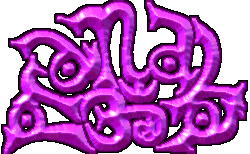

![]()
About Improvisational Rock and Roll
Rock and Roll has always had an improvisational element to it. But historically, once the best performance was determined in the recording studio, the performance wouldn’t vary much after that. Perhaps a solo would be completely improvised, but most likely the other instruments were pretty much playing the same chord progression and rhythm for the same length of time as they usually would.
Blues had improvisation that would be not only the solo instrument, but quite possibly the vocal as well. Still, the framework underneath generally was fixed- if you start a 12 bar blues the same chord progression will keep going until the end of the song.
Traditional jazz was similiar, but chord substitutions “pushed the envelope” to where the continuation of the same harmonic progression might not be clearly evident. Some jazz would go farther, Favorite Things”) to any sort of abstract expression.
The first examples of extended rock and roll improvisations probably started in the sixties with early examples by the Seeds (perhaps a little Psychedelic influence?) and the Rolling Stones.
Whether or not the improvisational excursions of the San Francisco bands came as a result of being so “altered” that they couldn’t tell what chord was coming next (or even if the next chord was in the same universe as the wafting billowing sunlight rays of conciouness), or for other reasons, Country Joe and the Fish, the Jefferson Airplane, Quicksilver Messenger Service, and the Grateful Dead all developed the art of extended improvisation because they had a forum for Psychedelic ritual which allowed them to do so.
During this same time in more southern regions of Los Angeles a band called the Doors were creating improvisations as a cradled velvet frame for Psychedelic Shaman Jim Morrison to set his poems in.
The Velvet Underground were doing garage heroin improvisations in New York while in England Jimi Hendrix and Cream were distorting convoluting and reinventing blues into a new style. Probably the most boundry-less improvisers were Pink Floyd, before madness and eventually the call of creating superstadium arena rock spectacles turned their evolution away from improvisation. How many shows can a band play wandering jams of uncertain quality anyway? For some reason, it was the Grateful Dead who refused to die (neither will the Goth underground - maybe there is some ironic protection from invoking death?). The Allman Brother’s developed a style of improvisation that actually had elements in common with the Grateful Dead, but The Allman Brothers were more consistant as musicians- but didn’t explore as wide a range of improvisational explorations - and didn’t have the personal and heartfelt quality some of the Grateful Dead’s songs had.
So improvisational rock waned in the face of arena rock that demanded perfection (if you want your platinum album to go quadruple platinum you are hesitant to risk disappointing your fans at the 25,000 seat sports arena), and the Grateful Dead were practically the sole voice in the Wilderness, as things go. Improvisational rock and roll has been reborn, somewhat. Phish is the best known of the later wave of improvisational rock bands. They are compared to the Grateful Dead because they share in common playing different songs each show, extended improvisation and generally doing a two set show without another act. To the connoisseur ( who may love both ) they have a different character - more intellectual - making impossible geometrical constructs in a 4th dimensional universe - and more on the side of “cleverness” in their songs, wheras the Grateful Dead may not show such consistent accomplishment of musicianship, the Grateful Dead were a bit more heart centered - the difference between soaring through the air bliss and an overflowing of the heart bliss. Many other improvisational bands are playing in varying degrees of less-than-stadium-sized venues.
Why improvisational music? It’s kind of like being on a perpetual Darwin expedition, you never know when you might run across a new species, and the permutations and variations on the old ones can be rich. Further, for the musician it is like a mediation - forcusing one’s attention on what one wants to create the present to be. And the listener shares in this, because what you are hearing is the musician being right at the threshold of the future - the present. Anyway, it is hard to write down every note in Darkstar, and play it with freshness from sheet music (it could probably work, but that’s because the music that the Grateful Dead originally improvised was such a strong expression/discovery).
We hope to turn this page into a message board where you can respond with your thoughts and insights, who your favorite bands are, what you like and don’t like in improvisational music - stay tuned, in may happen soon. Bookmark this page and check back!
© 1987-2000 G. Olerich
Back to Pranava |Back to Prelude | About
Pranava | What Is Pranava? | Where is Prelude?
About Improvisational Rock and Roll | About the Audio Formats | Order Page
CONTACT VIA EMAIl: MAIL@PRANAVA.COM